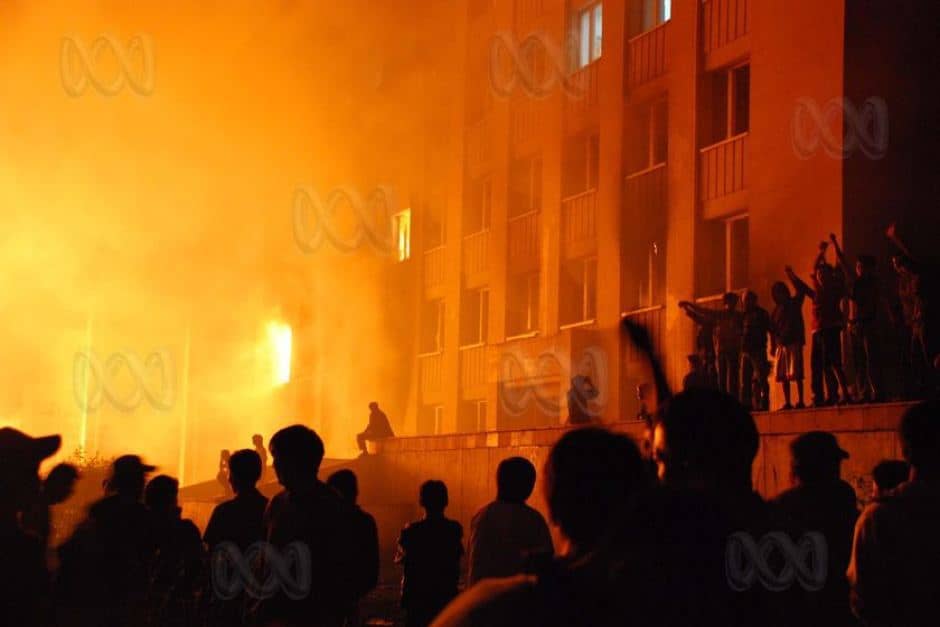Angry demonstrators in the Mongolian capital Ulaanbaatar have seized an opportunity to hold violent riots against the outcome of last weekend’s election, saying that they have been ”waiting for years” for this moment.
The protesters have burned down the headquarters of the ruling, former communist Mongolian People’s Revolutionary Party (MPRP).
Police fired rubber bullets into the crowd and used batons against the demonstrators as they began their rampage, but to no avail.
Protesters told ABC reporter Nicky Redl, who is in Ulaanbaatar, that they did not care if they were hurt or arrested because they had been waiting for this moment for years.
Several hundred protesters threw furniture out the windows of the building and threw bottles of alcohol into the flames.
The night sky was alight and the streets full of people as a neighbouring building and a car were also torched as protesters threw rocks and chanted slogans.
The masses blocked firefighting trucks from getting to the flames, only letting them pass in the early hours of the morning.
People yelled that they will not be intimidated and that they had had enough of the MPRP.
Mongolian President Nambariin Enkhbayar has declared a state of emergency in the capital.
Demonstrators say they want democracy and allege the ruling MPRP receives donations from China and Russia in return for access to the country’s resources, while most of Mongolia’s people remain poor.
While political unrest has been fairly common in recent years, violence in the landlocked nation between Russia and China is rare.
The nation of 2.9 million people made a peaceful transition from communism to democracy in 1992.
This story was published by the Australian Broadcasting Corporation on 1 July 2008.
Backstory: This story made it to the ABC via some detours. I spent some hours in these nighttime riots talking to protestors and taking photos. Protestors had were setting some buildings aflame and had lit fires on the streets, into which they threw vodka bottles. Everytime a bottle exploded, it led to a stampede. Not getting trampled required constant awareness of where everyone was headed and at what speed. Somewhere in the course of all the uproar someone concerned that I was taking photos for a government agency started hitting me. Other protestors protected me, but as I scrambled away, I dropped my mobile phone, which was quickly trampled and unusable.
ABC News knew that I was at the protest and had arranged to call me to record a voice report. Now the phone with the number they were planning to call was kaputt. I was in Mongolia for an ultramarathon, not to cover political unrest when these protests occurred, so I had no further gear on me.
I extracted the SIM card from the trampled phone, headed back to my hostel in the early morning hours and begged a mobile phone from another hostel guest. Using this phone and my SIM, a producer was able to contact me and record a report for the morning radio news bulletin. The photos I sent via the hostel’s shared computer.
I returned the mobile to its rightful owner and once the shops were open, I bought a throw-away phone to continue reporting, now on the three-day state of emergency the government had declared after the riots. Venturing outside was eery, as the streets were virtually empty apart from heavily armed military personnel while TV channels played nothing but children’s choirs singing.
